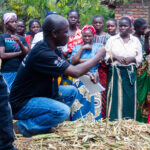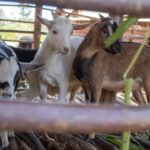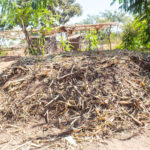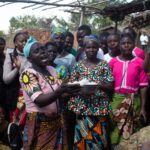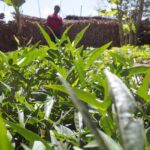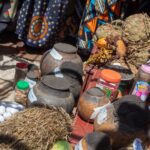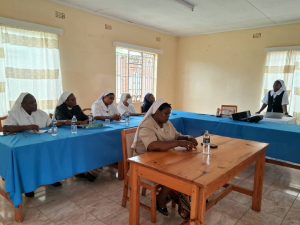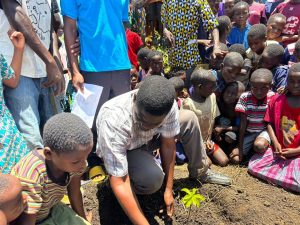CADECOM’s Agroecology Initiative in Dowa Shows Promising Results
Stakeholders promoting agroecology interventions in the country have expressed optimism about the farming system’s potential after a field visit in Dowa district.
The visit was part of the practical session of the ongoing National Agroecology Conference, where participants on Wednesday, toured a Lilongwe archdiocese’s Catholic Development Commission (CADECOM) project site, under Traditional Authority (T/A) Mponela, to gain firsthand experience with agroecology.
One of the participating farmers, Catherine Masiza from Kadyamaliro Section, described the agroecology farming system as a relief to the rising cost of farm input and the degraded soils.
‘’I have seen some impact of the agroecology; in my garden I no longer buy fertilizer to apply as the soils have been improved through the use of compost manure.’’ She explained.
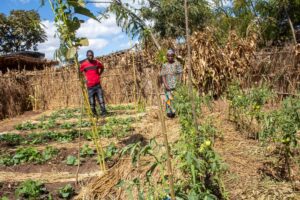
A member of the Participatory Ecological Land Use Management (PELUM) and a farmer from Eko Tione Farms, Tione Matthews Pwandapwanda, who are among the stakeholders, emphasized the crucial role of practical field visits in promoting agroecology.
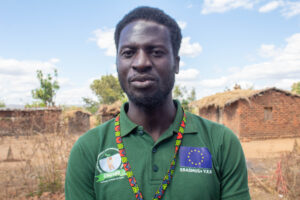
“For us to encourage people, we need to show them what is working on the ground, the field visit was a deliberate effort to provide participants with an opportunity to witness what others are already doing, thereby helping them appreciate the importance of agroecology,” he said.
Pwandapwanda expressed his positive impression of the work at Mponela EPA, highlighting the special household gardens and the use of seed banks, where he observed farmers conserving and storing seeds for the next season using traditional, local methods.
“This is very impressive, and it is in line with the agroecology principles,” he stated.
Meanwhile, the Assistant Agricultural Extension Development Officer for the Kadyamaliro Section under Mponela EPA, Ephraim Mlamba, praised CADECOM for aligning its project with government agricultural policies.
“This project is very important to us and also to farmers because as the Malawi government, we are encouraging farmers to do integrated household farming and also use of organic fertilizers, So CADECOM has brought that in another way of agroecology. So, it’s very useful and it’s very important,” Mlamba said.
CADECOM’s Acting Secretary, Madalitso Chilalire, described the event an eye-opener as it has helped them identify areas for improvement.
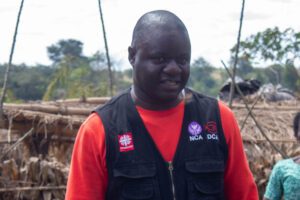
“Today’s event was mainly the practical part of the 2025 National Agroecology Conference, whereby participants decided to have an experiential learning or to experience what agroecology really looks like on the ground,” he said.
Discussions focused on various aspects of agroecology, including constructing goat sheds, improving plant interrelations, compost manure making, establishing seed banks and the use of biological pesticides.
Chilalire expressed great satisfaction with the level of adoption among farmers, which has exceeded their initial expectations.
“A number of farmers have adopted, and some are doing it even though they are not part of the project,” he said.
He added that while each CADECOM agroecology champion is responsible for training nine farmers, many have exceeded this number due to high demand and positive results.
“We are in good shape; we are heading in the right direction,” Chilalire concluded.
CADECOM is implementing the project in Dowa and Ntchisi districts with funding from NCA-DCA alliance, with the aim of promoting transition toward more sustainable, integrated, and resilient farming.
By Lester Mhone


